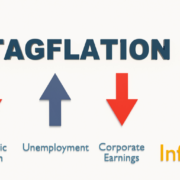by Lori Milner
Life has not been the same since March 2020. We are in ‘the new normal,’ which seems to change its rules every few weeks depending on the latest statistics or new variant of Covid emerging into our lives. As you feel like you are getting the hang of remote work, your lounge suddenly becomes a school. Although you know what to expect, you are still walking on eggshells, wondering when things will change again. Impermanence and change are part of life; it’s what keeps it exciting. However, you like the surprises that you know about. How can you create certainty for yourself and minimize those anxious, ruminating thoughts about how you are meant to get it all done in a constantly fluctuating world?
In his book Emotional Equations, Chip Conley says that Anxiety = uncertainty x powerlessness. In other words, anxiety is created when you focus on what you don’t know x what you can’t control. During these challenging times, the key to better days is cultivating the habit of letting go of the things you can’t control and instead focusing on what you can. When you find yourself caught in the anxiety loop, consider these factors within your control:
Own the first hour of your day.
“A rational person can find peace by cultivating indifference to things outside of their control”. — Naval Ravikant
No matter what the situation or circumstances, you can always control the first hour of your day. Phrases like ‘win the morning, win the day’ have become clichés, but with any good cliché, there is truth to it. The first hour will always unfold more predictably because your family is asleep and work has not begun. A morning routine doesn’t need to happen at 5 AM; how about training yourself to wake up 30 minutes earlier than your current time slot?
The point is to carve out a dedicated space of time for yourself so you can put yourself into a peak state for the day. Replace the habit of checking your phone first because this launches you into reaction mode, worrying about other people’s urgencies. Ritual brings comfort, certainty, and autonomy over your day. This can be as simple as writing down three things you are grateful for, doing five minutes of mindful breathing, stretching, reading, prayer, or exercise. What you do is less important; you want to create the system of waking up earlier to make progress on what matters most to you.
If you don’t take ownership of the first hour of your day, everybody else will.
If fifteen minutes feels daunting, how about beginning your day by making your bed? This seemingly insignificant ritual is the catalyst to create a positive trajectory for the rest of the day; it is the first domino piece that will trigger a series of better choices. If all else goes pear-shaped that day, at least you made your bed. Rituals are not exclusive to morning routines. You can create certainty in your world by taking comfort in your morning cup of coffee, whether made at home or collected from your favourite coffee shop. In challenging times, it’s incredible how much joy can be generated from the little things in life.
Own the last hour of your day.
“There are two ways to be. One is at war with reality and the other is at peace”. — Byron Katie
At this point, you know you cannot control the external circumstances like an emergency at work or a family member getting ill. You can create certainty and control in your life by owning your last hour of the day. Avoid playing tug-of-war with your phone in the last hour before bed to ensure you haven’t missed anything urgent in your inbox. This habit increases your stress levels and creates a wandering mind that doesn’t help you fall asleep.
What if your last hour of the day was something you began to look forward to? A ritual to allow yourself to wind down and detach from the day? How about replacing the habit of checking your phone with the habit of reading? You can also insert a gratitude practice noting three to five amazing things that happened in your day. This practice rewires your brain to look for joyous moments in your day rather than focus on what is missing.
Beware habits that provide a false sense of control.
In your attempt to seek control over your world, you may do things that provide comfort to you, but it’s a false sense of control and possibly self-sabotaging. Consider the habit of snacking after dinner, especially when you are reaching for chocolate and other comfort foods. It’s an instant boost of control in the moment; it makes you feel good but is it helping you towards your other goals? I have a client who replaced the habit of snacking on chocolate in her kitchen with watching a TED talk with a favourite herbal tea for ten minutes in her lounge. She looked forward to this new ritual with no guilt attached and allowed her to meet her personal development goal. Do you have any destructive habits you would like to shift? What can you do to offer yourself a healthier form of control, security, comfort, and certainty?
Own your focus.
“Who you are, what you think, feel, and do, what you love — is the sum of what you focus on.” — Cal Newport
A way to control your world is to hit refresh on the news continually feeds throughout your day. Of course, you need to know what is happening in the world, but your focus is on negativity, panic, overwhelm, and igniting a sense of helplessness and driving a lack of control. Every time you hit refresh, you also charge your body with a fresh dose of stress hormones like cortisol and adrenaline. Worrying is a mental habit that provides a false sense of control. We have all felt more powerless than ever during this pandemic, and often worrying provides a false sense of action. Although this habit gives you some comfort, it creates an energy leak and drains your battery.
Beware of social media as a point of focus. The next time you find yourself hitting refresh on your social media feeds, make sure you follow positive and inspiring people. In Chip Conley’s book, he suggests you do an anxiety audit when you feel overwhelmed. The audit includes four factors:
-
What I know — consider your knowledge, current network, past experiences.
-
What I don’t know — who do you know who has gone through something similar and can provide advice?
-
What I can influence — focus on these aspects, no matter how seemingly insignificant.
-
What I can’t control — just let it go.
Remember, you can never control someone’s reaction, but you can always plan. If you need to have a courageous conversation, think through what you want to say and the desired outcome. Stop imagining the worst-case scenario and bringing it back to the present moment and living as if it is reality. The truth is sometimes, all you can control in the moment is your breath. One mindful breath is enough to insert a mental pause button so you can respond rather than react.
Own your thoughts.
“You feel the way you think. When you can change the way you THINK, you can change the way you FEEL” — David D. Burns
When your external world feels entirely out of control, remember you always have the choice to control your inner world. Owning your headspace begins with owning your thoughts. Your self-talk and what you communicate to yourself have a significant impact on how you project yourself to the rest of the world. If the inner critic takes over the show and tells you that you are not enough and your life is hopeless, you will generate feelings of hopelessness, overwhelm, and fear.
When you can interrupt your negative thinking pattern and channel your inner cheerleader, you will create feelings of optimism, joy, and happiness. It doesn’t mean you will experience sunshine and rainbows every day, but your self-talk will determine the way you navigate these challenging moments. Instead of telling yourself, ‘how could you be so stupid?’, adopt a learning mindset and ask yourself — ‘what is this here to teach me, and what can I learn from this?’
Gratitude is the one thing you can always rely on to help steer your thinking away from overwhelm and anxiety. It is the thing you know but seems to fall off the radar when you need it most. It is not a tool that you can ‘break in case of emergency’. It is the one practice you can turn to no matter what, and it will never let you down. Greg McKeown said it so beautifully in his book Effortless, “If you focus on what you have, you gain what you lack. And if you focus on what you lack, you lose what you have.”
Own your state.
Enjoy what you can and ignore the rest. Let’s not waste any energy fighting things that are outside our control. Paulo Coelho
In the book ‘The Four Sacred Secrets’ by Preethaji and Krishnaji, they pose a powerful question:
“Recognise the state in which you have spent most of the past year. If this state were to become your mental and emotional baseline for the rest of your life, would you be a happy person or an unhappy person? Please see the truth.”
In the book, they differentiate between a beautiful state or a suffering state. Suffering refers to stress, overwhelm, anxiety and frustration. A beautiful state is defined as “serenity, happiness, gratitude, love or courage. The essence of a beautiful state is the absence of conflicting mental chatter, a greater presence to life, and a richer connection to the people around you.”
When you have a time scarcity mindset, there is a constant fear that you won’t get it all done. This sense of overwhelm is often what leads to habits like procrastination which only adds to your stress. How can you replace this with a beautiful state? Adopt a time abundance mindset. I don’t mean you have unlimited hours available, but you can choose the state you show up to your work. What energy are you bringing to it? Frustration and resentment or excitement and contentment? Instead of being so militant and tell yourself that you have to get through everything on your to-do list that day, choose your top three priorities and aim for progress. Schedule in time, block that time and protect it like a warrior. Give it your complete focus and create a micro-win, the first step of the goal or the first LEGO brick in your creation. When you have started and created momentum on something that matters to you, your entire state shifts. You cannot create more hours, but you can choose to create better hours.
State control is body awareness.
In addition to controlling your mindset, you can also control your body language and posture to catapult you into a beautiful state. If you sat hunched over and closed off, your physiology will signal to yourself and others a sense of anguish. If you hold yourself upright, your shoulders back, and a big smile on your face, you are triggering a different biochemical reaction in the body. Social Psychologist Amy Cuddy says:
‘The way you carry yourself is a source of personal power. In this context, it doesn’t mean we will always get the result we desire; instead, it means that we will come away from every interaction feeling that we fully and accurately represented who we are and what we want.’ If you conducted a body language audit right now — how are you sitting? Are your arms folded or resting on your chair? Are your shoulders hunched or upright? Is your jaw clenched or relaxed? The more awareness you can bring to your body language, the more you can trigger a beautiful state. Amy reminds us that we tend to sit in a powerless posture way more often than we realise.
No matter what is going on in your life, you can always control your body language bringing instant control over your inner world.
Own your intention.
Accept what is, let go of what was, have faith in what will be. Sonia Ricotti
No matter your external circumstances, you can always control your intention before taking action. It’s very easy to read something inspiring, have a sugar-rush high and commit to change. Those challenging moments can quickly go out of the window when stress takes over, and you focus on everything external that you have no control over.
Choose to set an intention of who you want to be in that moment and then set triggers to keep you on track. Set an alarm in your phone that says ‘Bold, confident, present, compassionate’ or choose the words that resonate with you. Put post-it notes on your computer or your phone screensaver. Ask yourself:
· Who do I want to be in this situation?
· How do I want my team to remember me during this time?
· How do I want to show up for my family?
· What skill do I want to demonstrate in this meeting?
· What is the desired outcome of this tough conversation?
The more intentional you are about who you want to be, the more present you will be in the moment and take ownership of your thoughts, focus and state. “Just keep in mind: the more we value things outside our control, the less control we have.” — Epictetus
Here’s to letting go of control,
Warm wishes
Lori




















